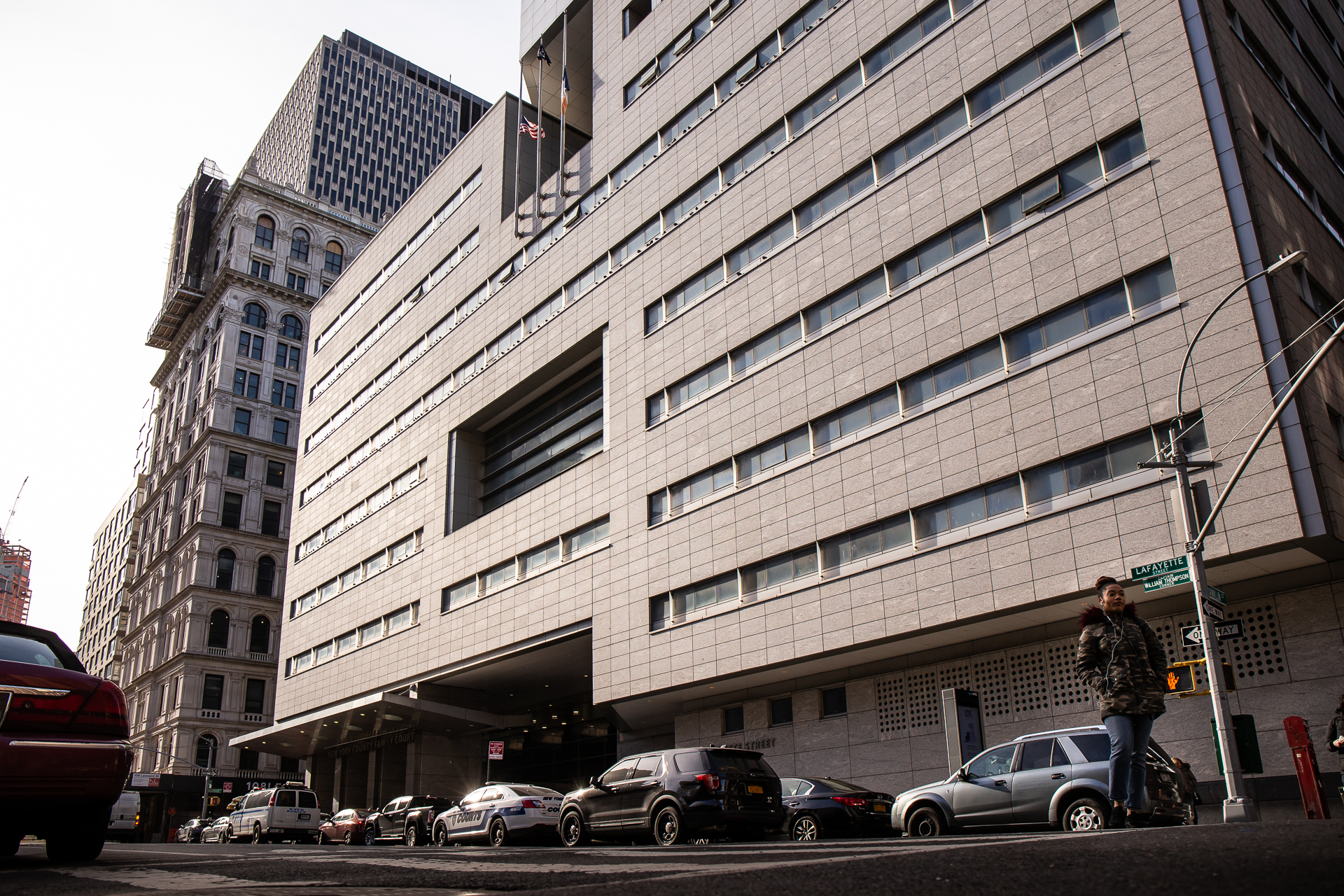“It is vital that we increase programming opportunities for youth and make them meaningful options in Youth Parts, a special court created after the Raise the Age law was passed.”

Adi Talwar
New York County’s Family Court at 60 Lafayette Street in Manhattan.Raise the Age (RTA), a state law, was designed to reduce the number of situations in which youth can be prosecuted—and treated—as adults in criminal courts by ensuring that low-level offenses and even some felonies are handled in Family Court, where rehabilitation, not incarceration, is the primary focus.
RTA was designed to protect youths in New York from long and unjust criminal sentences, and it has been doing that; however, it has not done enough for our youth.
As advocates and public defenders, we have seen some positive effects of the RTA law on the youth we represent, but the law has not changed the frequently negative narratives we encounter. Instead, the criminal legal system continues to dehumanize and criminalize Black and brown youth, portraying them in unjust, damaging, and racially discriminatory ways that unfairly represent them and remove hope and rehabilitation from the discussion.
These harmful narratives can have devastating consequences for Black and brown youth and their families, including excessive incarceration with no disposition of probation, and restrictions from the kinds of social service programs that can improve their health, safety, and well-being.
For the RTA law to be truly effective, we must recognize and acknowledge the humanity of Black and brown youth and end the harmful, dehumanizing narratives of these youth populations in marginalized communities. At the same time, it is vital that we increase programming opportunities for youth and make them meaningful options in Youth Parts, a special court created after the RTA law was passed.
The Bronx needs more youth programs and community organizations, specifically programs that have comprehensive and wrap-around services that support youths navigating the legal system. We must interact with youths in the community to learn from them what programs and community services they would like to have access to. This is one way we can invite young people to be a part of the solution instead of constantly viewing them as a part of the problem.
Indeed, in our experiences, programs that offer incentives such as stipend, paid internship, scholarships, mentorship, credible messenger, SYEP (Summer Youth Employment Program), paid GED program, and job training and placement are more successful with maintaining youths’ participation and program completion.
In the report, “Using Incentives to Increase Participation in Out-Of-School Time Programs,” the research suggests that incentives can motivate children and teens to become interested in activities that they might not have been interested in initially, and that incentives can also motivate them to continue their involvement.
Another report, “The Youth Incentive Entitlement Pilot Projects,” found that when minority youths were offered minimum-wage jobs (even part-time work tied to school enrollment), they came forward in large numbers. Providing incentives or a reward system is a vital tool in rehabilitating and empowering youth.
We must become a city that adopts a “Rehabilitation, Not Incarceration” perspective, especially for one of our most vulnerable populations, youths and adolescents, and begin to work towards increasing programming opportunities for youth.
To be sure, one may argue that there must still be consequences for those who engage in violent acts and serious offenses, but history and evidence have proven that excessive punishment does not make our communities safer. Safe communities are a result of healed people and healed people are a result of consistent and effective support.
New York must embrace the fact that young people are our future and move away from a system of punishment and incarceration and toward a system of support, empathy, and rehabilitation for all. We must no longer write a narrative that deprives youth of the chance to become an asset to their community. If we genuinely believe that our youths are the future, we must invest in them because doing so invests in a better future for everyone.
Orayne Williams is the director of the Adolescent Defense Project of The Bronx Defenders.







